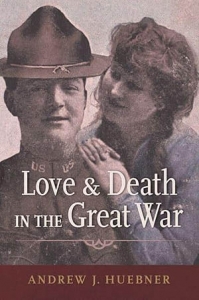Here is an article that deals with the money aspect of the First World War. Illustrated with two tables, the journalist explains that the United States laid out far more money than any of the combatant nations. Albeit the funds extended were in the form of loans to the Entente powers rather than the creation of their own military, in the end the U.S. ended up being the one nation that invested the most in the war. The attached essay reviews a colossal history written by a veteran of the U.S. First Infantry Division, Captain Shipley Thomas: The History of the A. E. F. - for those who are looking for some knowledge concerning what the American Army was up to during the last six months of the War (it was bloodiest period) the review makes for a good read.
- for those who are looking for some knowledge concerning what the American Army was up to during the last six months of the War (it was bloodiest period) the review makes for a good read. Click here to read about the high desertion rate within the U.S. Army of 1910.
Click here to read some statistical data about the American Doughboys of the First World War. The full text of the telegram to German Ambassador Von Eckhardt from Dr. Alfred Zimmermann outlining the plan to form a military alliance with the nation of Mexico. Should the United States declare war on Germany and Austria, Mexico, in turn, was to attack the American South-West and reclaim her lost colonies. British fighter pilot in the Great War, Lieutenant E.M. Roberts, gave this account of the deadly game of "Boche-hunting above the clouds":
- from Amazon:

"I noticed he was going down a little, evidently for the purpose of shooting me from underneath. I was not quite sure as yet that such was really his intention; but the man was quick...he put five shots into my machine. But all of them missed me."
"I maneuvered into an offensive position as Quickly as I could, and I had my machine gun pelting him...The Hun began to spin earthward."
In this 1920 article the theologian George Burman Foster (1858 - 1918), examined the writings of the German philosopher Friedrich Nietzsche (1844 - 1900) and surmised how that philosopher might have understood the First World War, with all of it's scientific and industrial power.
"War constitutes one of of those dangerous 'experiments' undertaken by the wise man to further the progress of life, to test the value of an idea, of life. Hence, war is beneficial, good in itself; and thus Nietzsche predicts without dismay or regret that Europe is not far from entering into a period of great wars when nations will fight with one another for the mastery of the world."
Click here to read about the Nazi interpretation of Nietzsche.
Two articles from 1917 heaped praise upon the laureled cranium of the British war correspondent Philip Gibbs (1877 - 1962). Having written diligently for the readers of the DAILY MAIL and DAILY CHRONICLE, who were also anticipating his book THE BATTLE OF THE SOMME (1917), Gibbs was "admitted" to the VANITY FAIR "Hall of Fame" (for whatever that was worth at the time):
"He has been able to bring the wide, modern, romantic outlook to bear in his survey and analysis of fighting and the conditions of fighting"...He is a war-correspondent of a 'new dispensation', giving 'not a realistic or a melodramatic vision of war, but a naturalistic vision'".
At the close of hostilities in 1918, Philip Gibbs was filled with disgust concerning his cooperation with the censors and would begin writing NOW IT CAN BE TOLD (1920), in which he angrily names the bunglers in command and admits that he wrote lies all through the war. |